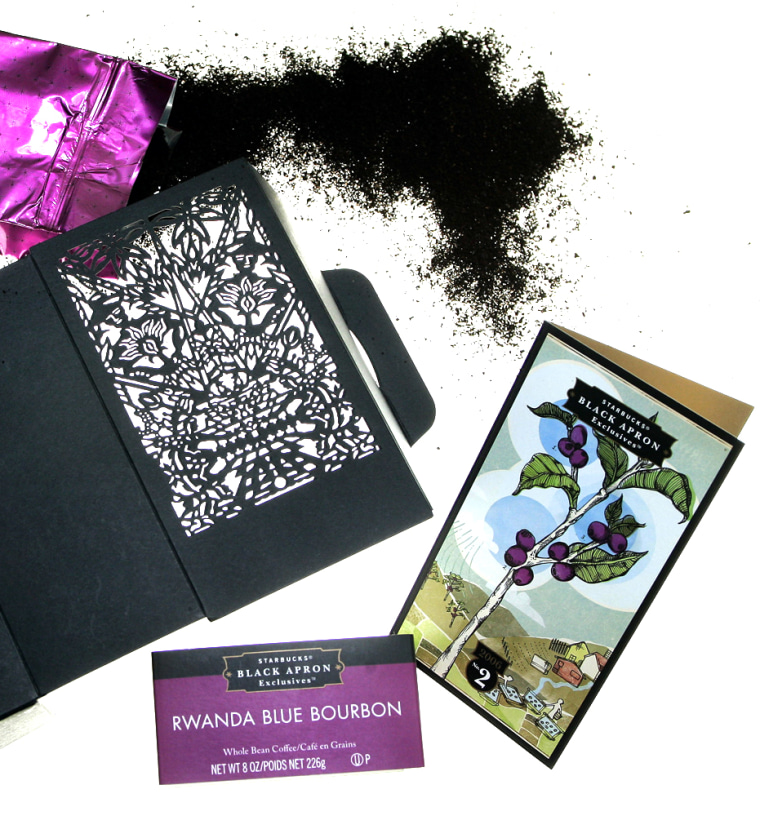Starbucks Corp. announced Tuesday that it will soon start selling its first Rwandan-grown coffee in North American stores.
Rwanda Blue Bourbon is the company’s 10th variety in the Black Apron Exclusives line of high-end coffees produced in limited quantities. Half-pound fuchsia foil bags in decorative black boxes will sell for $12 in the United States and $16 in Canada, beginning March 13. Blue refers to the blue-green color of the unroasted coffee cherries, and bourbon refers to a variety of arabica species.
Starbucks, the world’s largest specialty coffee retailer, said it decided to start buying beans from the central African nation after visiting it in 2004 to gauge its potential as a premium coffee supplier.
Historically, Rwandan farmers have grown only low-grade beans as a cash crop and almost quit growing coffee entirely after the genocidal civil war that killed more than half a million Rwandans in 1994.
In 2001, Rwandan farmers started producing specialty coffee for the first time with help from the U.S. Agency for International Development and another group, Agribusiness Development Activity in Rwanda, Seattle-based Starbucks said in a fact sheet provided to The Associated Press.
The agencies taught farmers how to cultivate premium arabica coffee beans, and secure bank loans needed to buy equipment and build coffee-washing stations, where coffee beans are fermented, then washed.
In its last visit to Rwanda, Starbucks picked two mills to work with, both of them in Cyangugu, a province in the southeastern part of the country along the border with the Republic of Congo and Burundi.
Both mills produce coffee grown at high altitudes — as high as 5,500 feet — in soil rich with volcanic ash.
Dub Hays, Starbucks’ senior vice president of coffee, would not disclose how much Rwandan farmers were paid for their Starbucks beans, but said the company pays a global average of $1.28 per pound to its producers, and follows green coffee purchasing guidelines that reward performance in several environmental and social categories.
The company said the coffee it’s buying is grown by small farmers who have about 175 trees per farm.
Starbucks buys coffee from 26 countries in Latin America, the Asia-Pacific region and East Africa.
